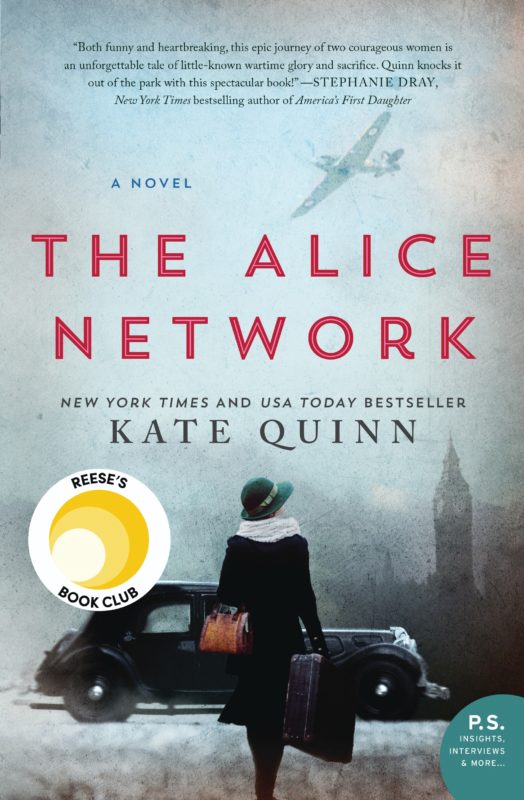I saw this pop all over Facebook, mostly in the Romance genre, and when I made my own list, it got me thinking not just about the writers I’m lucky enough to know, but what I learned from them–what we can all learn from writers as terrific as these, not just about writing but about how to get along in this weird and wacky business. So without further ado…
1 & 2: Margaret George and Diana Gabaldon, whose work I revered, both very kindly taking the time to read my debut novel and offer cover quotes that knocked my socks off. Superstars like this who reach down from their high, high pedestals to give a helping hand are more inspirational than they will ever know.
The Takeaway: You should never get so successful you can’t lend a hand to someone just getting started in the business.
3. Stephanie Dray, who has talked me off more ledges than I can count, helped brainstorm more books than I can list, given more good career advice than I can remember, and scared more waiters and soccer moms in the cafes and restaurants of Maryland (with overheard conversations about historical poisons and murder plots) than I can recall.
The Takeaway: Your friends in the business will save your sanity, so make time for them and it will come back times three.
4. Sophie Perinot, undoubtedly a Tudor queen in a past life, talented and fiery and the best, most ruthless crit partner any writer was ever lucky enough to get.
The Takeaway: Good critique partners are worth their weight in gold, so hone your own skills in that department and treasure the ones you find to whom it comes naturally.
5. C.W. Gortner, who took me under his fabulous Prada-sleeved wing as a wide-eyed newbie at my very first Historical Novel Society conference, and showed me the fun and scandalous side of this business.
The Takeaway: Whenever you’re at a conference, festival, or event, find a newbie hanging shyly on the outskirts and yank them into the middle of the fun.
6. Empress Christi Barth, who not only writes hilarious romance but runs the universe, and kindly takes time to help her friends run their universes when they are floundering.
The Takeaway: Organizational genius CAN go hand in hand with creative chaos.
7. Eliza Knight, who can always be relied upon to bring wine and to achieve daily wordcounts of which I can only dream.
The Takeaway: Learn wordcount tricks from authors who write in other genres, because good advice crosses genre. Also, wine is a life-saver.
8. Laura Kaye, who can diagram scandalous things on cocktail napkins and then dissect Hamiltonian finance reform, while also mapping a complete book launch marketing plan, without turning a hair.
The Takeaway: It is possible to write both serious and weighty historical themes and steamy sex scenes, and to feel entirely justified in upturning a certain finger at those who would find those talents incompatible, inexplicable, or unworthy.
9. Lea Nolan, for demonstrating that even the nicest most people-pleasing writer needs a hard-edged “I will cut you” New Yorker somewhere inside who can come out and say F*** You to the crazy.
The Takeaway: As much as you want to say yes to everything, help out every enthusiastic reader and fellow writer who asks, take on every new challenge and opportunity, you can’t do it all or you will go nuts. Take care of yourself by learning to say “No.”
10. M.D. Waters, whose can mix sci-fi and romance and action-adventure and mystery with a versatility that awes me.
The Takeaway: Sure, branding is important, but you can enrich your stories immeasurably by learning from other genres and mixing their elements.
11. Simon Turney, who is not only a talented scrivener and a helluva nice guy to hit a pub with, but who emailed me some lovely words of praise at a moment I was seriously second-guessing my decision to write something way out of my comfort zone. I still have that email, for when I need a jolt of confidence.
The Takeaway: Take the time to write a nice encouraging email to a colleague. You never know when it might reach them on a day they’re tearing their hair out and contemplating a career move to fry cook or court reporter or anything, anything but putting words on paper.
12. Donna Russo, who can dial any writer conference to a 12 and who keeps writing tales of the Italian Renaissance which I so love.
The Takeaway: Historical fiction does not automatically mean stodgy. It can also mean stilettos and prosecco and the kind of wild, fabulous imagination that plots headlong chases through historical alleyways and makes this genre fun rather than plodding.
13. Kate Forsyth, a story-teller to hold an entire room spellbound like a faerie queen weaving enchantments.
The Takeaway: Telling stories is the oldest art in the world, and when you strip away the externals like Kindle format and dust-jackets and cover copy and deckle edges, it still comes back to a hushed voice that makes people lean in to breathe “What happened next?” It really is magic.
14 & 15: Jennifer Robson and Janie Chang, the best book-tour travel-mates in the world, keeping their cool and their senses of humor even when the travel gods are slinging car trouble, plane trouble, and bears* in our path to keep us from our book signings.
The Takeaway: It’s good to cultivate wry humor and Zen patience because you never know when this business will start slinging bears at you.
*yes. Actual bears.*
What invaluable lesson have you learned from a writing colleague?







